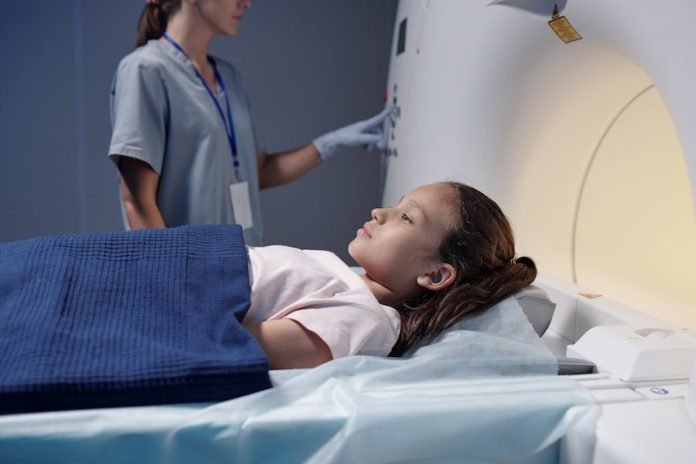
A team from the Julius-Maximilians-Universität Würzburg (JMU) consisting of physicists and medical doctors has introduced a novel imaging technology called Magnetic Particle Imaging (MPI).
This team includes Professor Volker Behr and Dr. Patrick Vogel from the University’s Institute of Physics.
What is MPI?
Methodology: MPI relies on visualizing magnetic nanoparticles that are introduced into the human body. Unlike other imaging modalities, it does not rely on radioactive markers or background signals from tissue or bone.
Detection: Instead of using gamma rays, MPI works on the response signal of these magnetic nanoparticles to changing magnetic fields.
By manipulating the magnetization of nanoparticles with external magnetic fields, their presence and location within the body can be ascertained.
Comparison to Previous Methods
Though the MPI concept was introduced by Philips as early as 2005, initial designs were limited to smaller samples and were not suitable for human examination due to their size, weight, and cost.
New Developments
Size and Mobility: The team innovated in 2018, achieving the required magnetic fields for imaging in a more compact design. Their resulting iMPI scanner is designed especially for intervention and is extremely portable.
Comparison with X-Ray: Vogel and his team demonstrated the iMPI scanner’s effectiveness through real-time measurements alongside a standard angiography X-ray device in university hospitals.
Clinical Evaluations: The team, in collaboration with Professor Thorsten Bley and Dr. Stefan Herz from the Würzburg University Hospital, evaluated the images obtained from a realistic vascular phantom.
Impact and Future
Radiation-Free Interventions: This innovation marks a significant step towards radiation-free interventions. Dr. Stefan Herz emphasizes the transformative potential of MPI in medical imaging.
Further Development: The team is focusing on enhancing the image quality of their scanner.
In a nutshell: Magnetic Particle Imaging (MPI), developed by JMU researchers, offers a radiation-free method for visualizing processes within the human body.
It is set to transform the realm of medical imaging, reducing the reliance on radiation-based techniques.
If you care about heart health, please read studies about how eating eggs can help reduce heart disease risk, and herbal supplements could harm your heart rhythm.
For more information about heart health, please see recent studies about supplements that could help prevent heart disease, stroke, and results showing that a year of committed exercise in middle age reversed worrisome heart failure.
The study was published in Scientific Reports.
Follow us on Twitter for more articles about this topic.
Copyright © 2023 Knowridge Science Report. All rights reserved.



